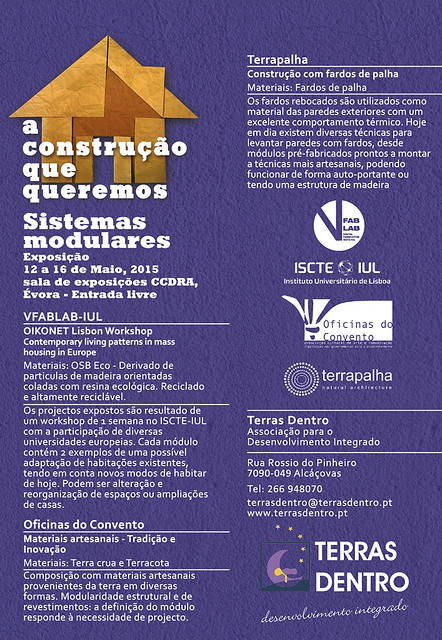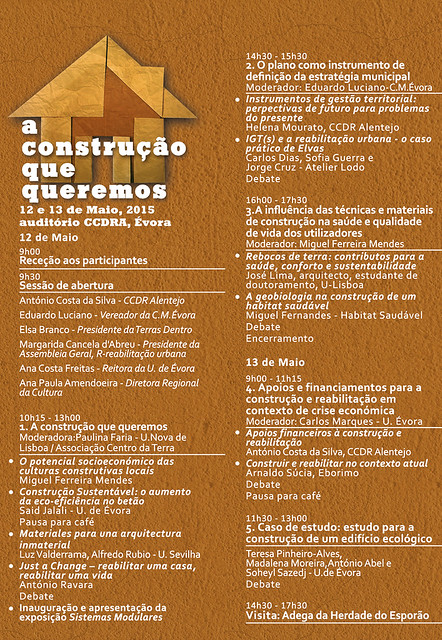
“El patrimonio vacío: elementos para una lectura del proceso de mercantilización de la herencia”: Comunicacion seleccionada y presentada (con publicacion en actas) por Alfredo Rubio, Pablo Millan, Luz Fernandez-Valderrama y Amanda Martin-Mariscal en el Congreso Internacional HERITAGE 2010, HERITAGE AND SUSTAINABLE DEVELOPMENT de Evora.
Alfredo Rubio, Pablo Millan, Luz Fernandez-Valderrama y Amanda Martin-Mariscal. Empty heritage: elements to understand the heritage commer-cialization process. HERITAGE 2010, HERITAGE AND SUSTAINABLE DEVELOPMENT, Editors: R. Amoêda, S. Lira & C. Pinheiro. ISBN: 978-989-95671-3-9
ABSTRACT:
This report starts from a general approach about our heritage present-day situation and as a continuity of previous pieces of research on the evolution of its non juridicial nuance of mean-ing, its extension and the treatment of those material and immaterial items which conform to our heritage, something worth being protected and preserved from the ravages of time.
Several societal relations arise among today´s societies, as far as their heritages are con-cerned, i.e., enfasizing the thematic processes (tourist ones) on both territorial and urban levels. This acquiresa substantial relevance in the city historical centres and in the city on its whole. In addition, references to immaterial heritage elements are included, mainly those related to feasts and their places, being the object of a loss of social meaning.
The afore-mentioned processes cannot be considered without certain conditioning elements. Therefore, the ways of difference-appropriation on capitalism´s side in its quest for oftaining monopolistic rents (D. Harvey) and the processes (and procedures) of transformation into stage places. Both, exceptionality and particularity, are crucial in the definition of “special qualities”, and everything able to be turned into a commercial product, will be so. However those proc-esses have their own limits: the commercialization reflected on language as “putting into ef-fect” tends to destroy the exceptional qualities and likewise, it could erase the heritage memory (its sense) when interpreting it, as far as the local inhabitants are concerned, and substitute it for an appropriate version, close to the aim of the commercialization. To conclude, we state the need of responsibility ethics with regard to us putting into effect our heritage.
Key words: heritage, commercialization, tourist thematisation and responsibility ethics.
Continue reading »



 Los próximos días 20 y 21 de Febrero tendrá lugar el III Seminario sobre Regeneración Integral de Barrios. Construyendo la Cooperación Transfronteriza Alentejo-Andalucía-Algarve en la ciudad portuguesa de Évora. El seminario es una iniciativa conjunta del Grupo de Cooperación Arquitectura, Territorio y Salud (ArTeS) de la Universidad de Sevilla y el Centro de Huistoria de Arte e Investigación Artística (
Los próximos días 20 y 21 de Febrero tendrá lugar el III Seminario sobre Regeneración Integral de Barrios. Construyendo la Cooperación Transfronteriza Alentejo-Andalucía-Algarve en la ciudad portuguesa de Évora. El seminario es una iniciativa conjunta del Grupo de Cooperación Arquitectura, Territorio y Salud (ArTeS) de la Universidad de Sevilla y el Centro de Huistoria de Arte e Investigación Artística (
